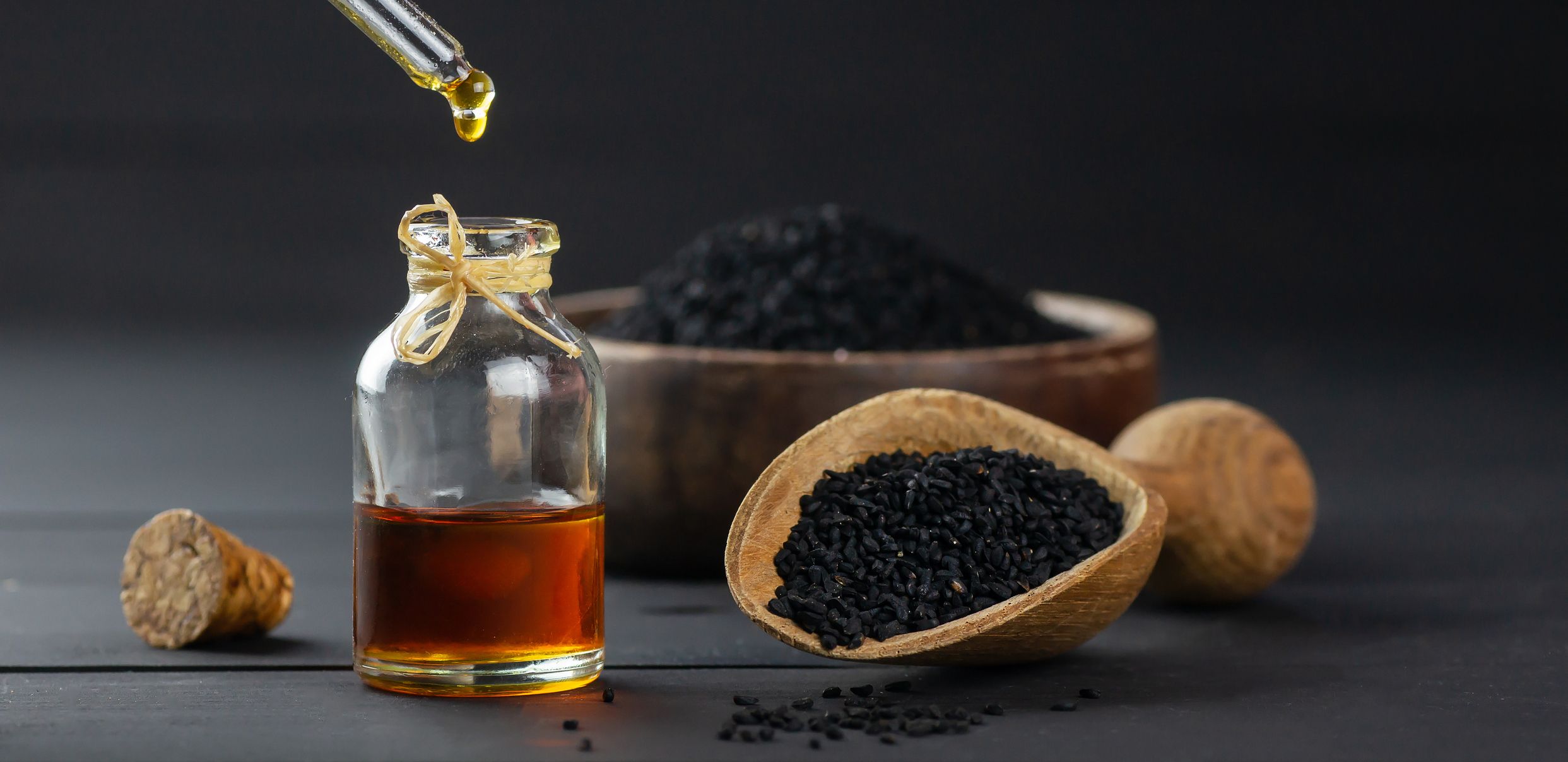In the vast tapestry of natural remedies, few substances boast a history as rich and diverse as black seed oil. Extracted from the tiny, potent seeds of the Nigella sativa plant, it has been revered across civilizations for its therapeutic properties. With roots deeply embedded in ancient healing practices, this remarkable oil is making a resurgence in modern wellness circles. Join us as we explore the captivating journey of black seed oil, uncovering its ancient origins and the myriad ways it addresses contemporary health challenges.
 A Glimpse into the Ancient History of Black Seed Oil:
A Glimpse into the Ancient History of Black Seed Oil:
The use of black seed, also known as Nigella sativa or black cumin, dates back thousands of years. Revered by ancient civilizations such as the Egyptians, Greeks, and Romans, it was often considered a panacea for various ailments. In traditional Ayurvedic medicine and Islamic healing traditions, it was hailed as a remedy for a wide array of health issues.
The Nutrient-Rich Composition:
The potency of black seed oil lies in its rich and diverse composition of bioactive compounds:
1. Thymoquinone:
This key component is known for its antioxidant and anti-inflammatory properties, contributing to the oil’s therapeutic effects.
2. Omega-3 and Omega-6 Fatty Acids:
Essential fatty acids play a vital role in supporting overall health, including cardiovascular and brain function.
3. Vitamins and Minerals:
It contains a range of vitamins and minerals, including vitamin A, vitamin C, calcium, and potassium, enhancing its nutritional profile.
4. Phytochemicals:
These plant compounds contribute to the oil’s immune-boosting and anti-cancer properties.
Modern Applications:
1. Immune System Support:
Black seed oil’s immune-boosting properties are attributed to its rich antioxidant content. Regular consumption may fortify the immune system, helping the body defend against infections and illnesses.
2. Anti-Inflammatory Effects:
Thymoquinone, a key component, exhibits potent anti-inflammatory effects. This makes seed oil a potential remedy for conditions involving inflammation, such as arthritis or inflammatory skin conditions.
3. Cardiovascular Health:
The omega-3 and omega-6 fatty acids in black seed oil contribute to cardiovascular health by promoting healthy cholesterol levels and supporting overall heart function.
4. Digestive Health:
It has been traditionally used to alleviate digestive issues, including indigestion and bloating.
5. Respiratory Wellness:
Inhaling the vapor of seed oil may provide relief for respiratory conditions such as asthma or allergies. Its anti-inflammatory and bronchodilator effects could contribute to improved respiratory function.
6. Skin Conditions:
It’s anti-inflammatory and antimicrobial properties make it beneficial for various skin conditions, including eczema and psoriasis. Applied topically, it may soothe irritated skin and promote healing.
7. Weight Management:
Some studies suggest that black seed oil may aid in weight management by promoting fat loss and reducing inflammation associated with obesity.
8. Diabetes Management:
Research indicates that seed oil may help manage diabetes by improving insulin sensitivity and regulating blood sugar levels.
Incorporating Seed Oil into Your Routine:
1. Internal Consumption:
Consume black seed oil as a supplement in the form of capsules or by incorporating it into your daily diet.
2. Topical Application:
For skin conditions or localized issues, apply seed oil directly to the affected area.
3. Inhalation:
Inhale the vapor of black seed oil by adding a few drops to hot water or a diffuser.
4. Oil Pulling:
Incorporate seed oil into your oral hygiene routine through oil pulling. Swish a small amount in your mouth for 15-20 minutes before spitting it out. This may contribute to oral health.
5. Culinary Use:
Add a few drops of oil to salads, smoothies, or other dishes. Its slightly bitter taste can complement a variety of foods.
Choosing High-Quality Seed Oil:
Given the surge in popularity, it’s essential to choose a high-quality product. Consider the following factors:
- Cold-Pressed and Organic: Opt for cold-pressed, organic black seed oil to ensure the preservation of its natural nutrients.
- Purity and Authenticity: Select a product that is free from additives and contaminants. Authenticity is crucial for experiencing the full benefits.
- Reputable Brands: Choose oil from reputable brands with positive reviews and transparent sourcing practices.
Cautions and Considerations:
While black seed oil is generally safe for most people, it’s essential to exercise caution and consider the following:
- Dosage: Start with a small dosage and monitor how your body responds.
- Potential Interactions: It may interact with certain medications. If you are taking medication or have underlying health conditions, consult with your healthcare provider before incorporating it into your routine.
- Topical Application: Perform a patch test before applying black seed oil topically to ensure you don’t have an adverse reaction, especially if you have sensitive skin.
Conclusion:
Black seed oil, an ancient remedy with a timeless legacy, continues to captivate the modern world with its diverse health benefits. From immune support to skin care and beyond, the therapeutic potential of seed oil is as vast as its historical roots. As you explore the miraculous properties of this tiny seed, remember to approach its usage with mindfulness, considering individual sensitivities and seeking professional advice when needed. Let black seed oil be your companion on the journey to holistic well-being, bridging the wisdom of ancient traditions with the demands of modern living.




